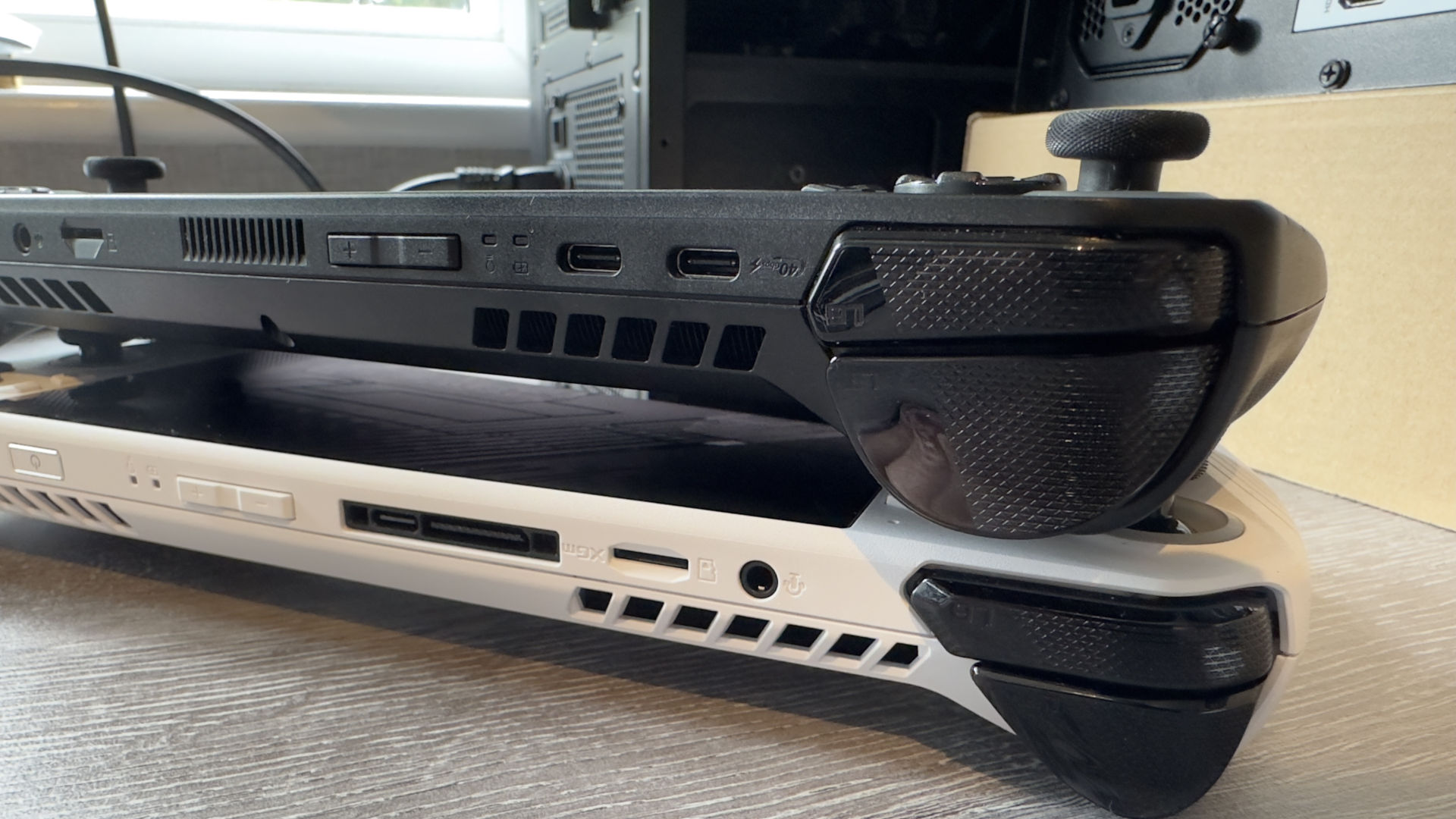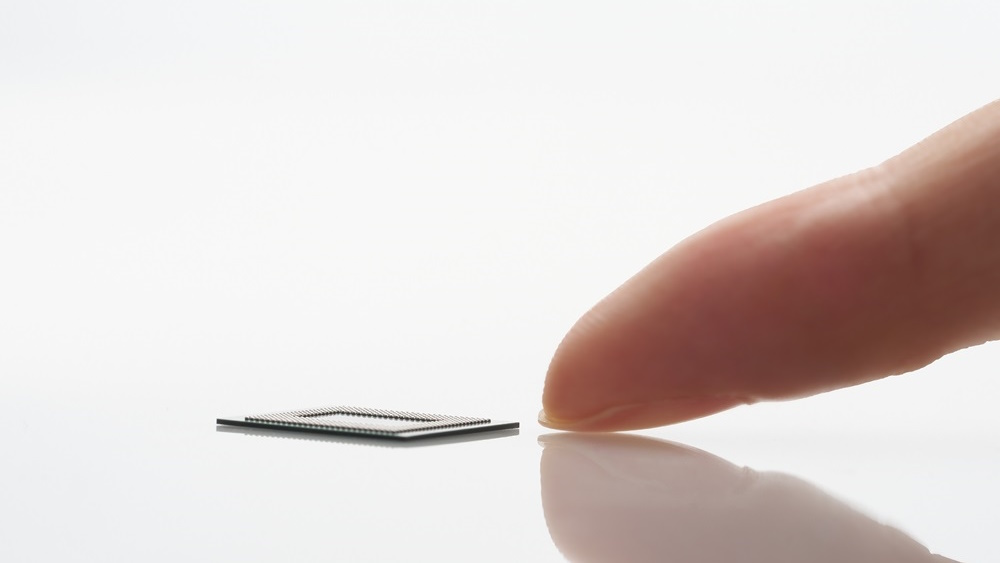
Even in the world of PC gaming things have been slowly taking a low-power, AI-centric turn. Gaming handhelds with better battery life and low-power laptops—now including ones built on Arm architecture with Snapdragon X chips—are all the rage and I can't say I mind, to be honest. Who doesn't love more convenient gaming? That's why it's always exciting when there's news like this, that fast, low-power memory has just got even thinner.
Samsung has started mass producing the "industry’s thinnest" 12nm 12 GB/16 GB LPDDR5X packages.
At 0.65 mm, these new DRAM chips are 0.06 mm thinner than your usual LPDDR5X ones, which might not sound like a massive reduction but can make a load of difference in a bunch of use cases. We're talking sub-millimetre overall thickness, here.
Talk has thus far mostly surrounded how this thinner DRAM will benefit phones, which is understandable because mobile devices will be a primary use case and there's obviously a wide market for it. But we're PC gamers, here, and thin LPDDR5X memory is far from irrelevant to PC gaming.
Let's go over what it won't affect, first. Obviously this won't affect our most treasured gaming PCs because these don't use LPDDR RAM and instead use regular DDR memory. It also probably won't affect your average gaming laptop that uses slottable RAM sticks because these laptops opt for upgradeability or cheap cost over thinness.

What it might affect, though, are low-power (duh) and slim devices like thin gaming laptops and handheld gaming PCs. And given that this seems to be the direction that gaming tech is heading in general, a new record for the world's thinnest LPDDR5X RAM is quite exciting.
JEDEC published the LPDDR5X spec in 2021, and since then Samsung and other chip makers have pushed the faster memory into the low-power market. It's about as fast as regular DDR5 memory and now features in some of the best thin gaming laptops such as the Asus ROG Zephyrus G14 (2024).
The biggest gaming news, reviews and hardware deals
Keep up to date with the most important stories and the best deals, as picked by the PC Gamer team.
It's a great choice of memory for any gaming device that wants to keep things thin and light by featuring non-upgradeable, soldered memory. If you're going to solder your memory to save room and simultaneously keep gamers happy, you're going to want that memory to be on the cutting edge of low-power speed.

Best CPU for gaming: The top chips from Intel and AMD.
Best gaming motherboard: The right boards.
Best graphics card: Your perfect pixel-pusher awaits.
Best SSD for gaming: Get into the game ahead of the rest.
LPDDR5X memory's where it's at on that front. Which is why we can see it breaking into the handheld gaming PC market. The Asus ROG Ally X, which is currently the best handheld gaming PC, features LPDDR5X-7500 memory. And we'll no doubt see more handhelds opting for the faster memory over the coming months and years because it's a very competitive market right now and manufacturers will want to eke out whatever performance and efficiency gains they can. We're already seeing the glorious effects of this competition with AMD's Ryzen AI 300-series chips.
What might thinner LPDDR5X memory mean for these handheld gaming PCs and thin gaming laptops? Primarily, it will mean the same as for phones: Either more headroom for cooling or more space saved for even thinner devices. As Samsung points out, it should mean the creation of "additional space within mobile devices, facilitating better airflow."
And yes, LPDDR6 will be with us soon, but it likely won't replace LPDDR5 or LPDDR5X in our devices for some time.
Of course, a few mm shaved off might not allow manufacturers to work wonders, but every little does indeed help. So, here's to hopefully marginally thinner, lighter, and cooler handheld gaming PCs moving forward.

Jacob got his hands on a gaming PC for the first time when he was about 12 years old. He swiftly realised the local PC repair store had ripped him off with his build and vowed never to let another soul build his rig again. With this vow, Jacob the hardware junkie was born. Since then, Jacob's led a double-life as part-hardware geek, part-philosophy nerd, first working as a Hardware Writer for PCGamesN in 2020, then working towards a PhD in Philosophy for a few years (result pending a patiently awaited viva exam) while freelancing on the side for sites such as TechRadar, Pocket-lint, and yours truly, PC Gamer. Eventually, he gave up the ruthless mercenary life to join the world's #1 PC Gaming site full-time. It's definitely not an ego thing, he assures us.

